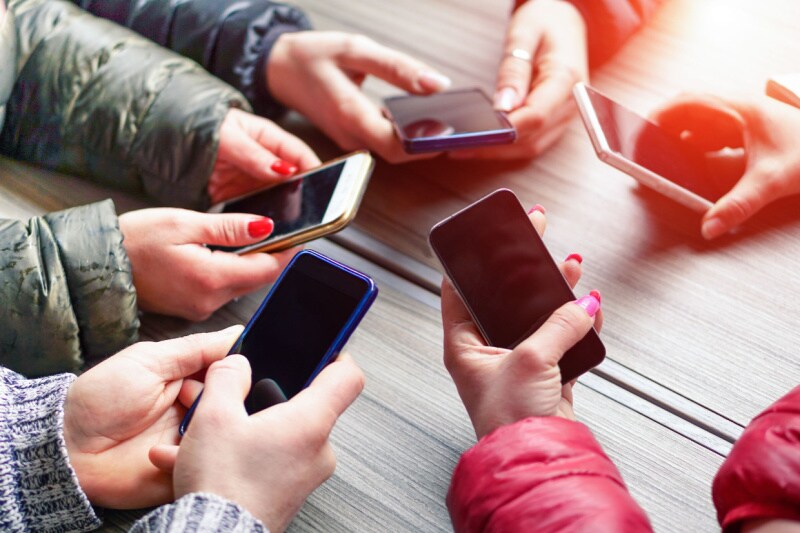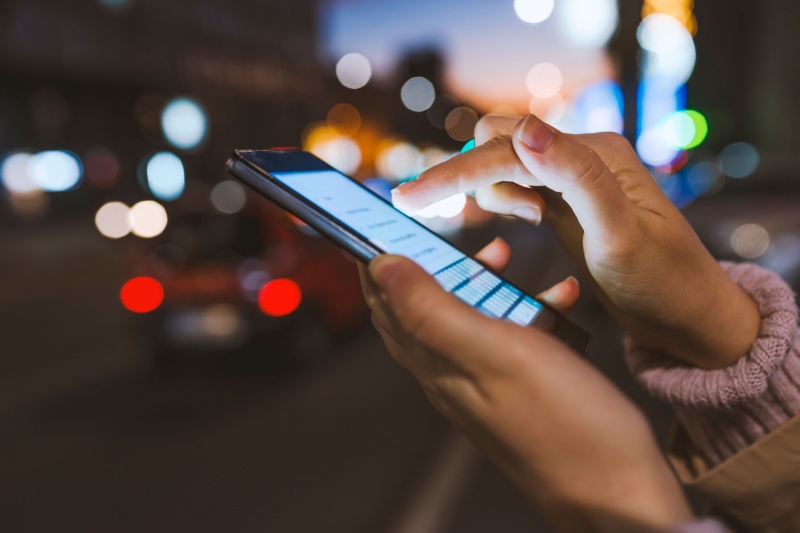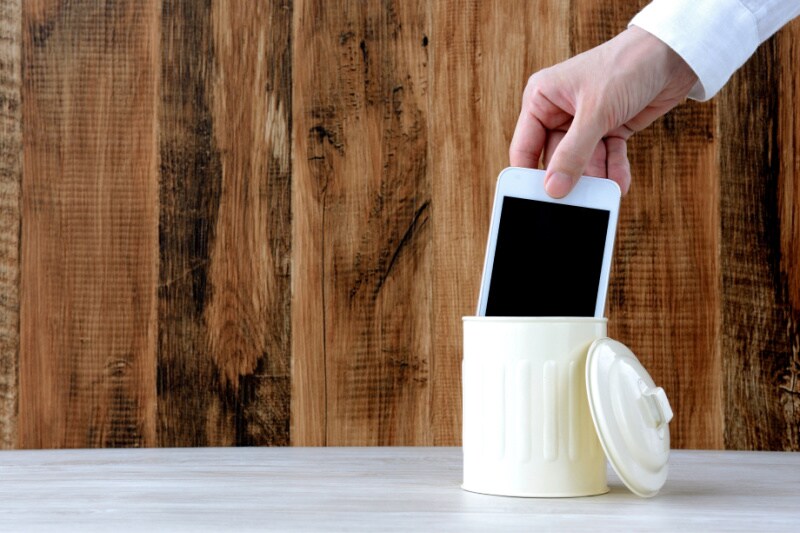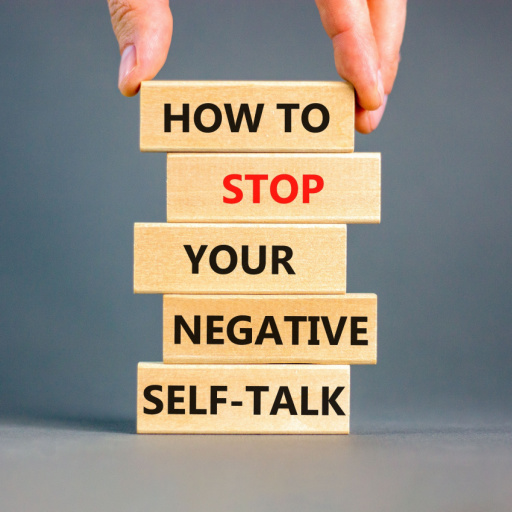Key Takeaways
- 28% of adults report feeling addicted to social media on their phones.
- The behavioral addiction to your cell phone is called nomophobia, fear of being without a cell phone device.
- Phone addiction can have serious consequences on mental health, physical health and daily productivity.
- Overcome phone addiction by practising mindfulness, exercising control and gradually reducing screen time.
After a long day of work, do you find yourself ‘revenge scrolling’ or ‘doomsurfing’ on your mobile phone to get a sense of ‘me time’? Does a single notification or vibration make you want to check your phone immediately? Do you feel restless or uneasy when you don’t have access to your phone, even if for a brief period? Do you find it difficult to put your phone down even when you’re tired and in dire need of a break?
These are clear indications of phone addiction. 28% of adults report feeling addicted to social media and their phones, which can have adverse effects on their mental and physical health.
Learn from experienced mental health, fitness, and nutrition experts how to quit unhealthy habits and adopt a healthy lifestyle in the new year. In this blog, mental health expert Shreeya Ghag from Mpower, an initiative by Aditya Birla Education Trust, will guide you on how to quit mobile addiction.
What you need to know:
The world is at the tip of our fingertips, quite literally. The biggest evidence is how we are always glued to our phones.
Understanding mobile addiction

Smartphones have made our lives easier, convenient, and seamless, as everything is available and accessible at the drop of a hat (or by the tap of a button). But we have taken this liberty for granted and developed an obsession with our phones, which has become a full-blown addiction. This behavioral addiction is termed nomophobia, which is the fear of being without a cell phone device.
Impact of phone addiction

When you want to know how to quit mobile addiction, the first step is understanding its symptoms. Some symptoms of mobile phone addiction can be observed as follows:
- The constant need to check notifications
- Feeling restless without a phone
- Spending excess time on the phone as a boredom resolution and without any fixed purpose
Mobile phone addiction has branched into various mental, physical, social, and emotional health issues, such as the following:
- A disturbed sleep cycle
- Dry eyes because of the constant screen time
- Affected eyes owing to the blue light emitted from mobile phones
- Headaches and migraines
- Neck pain
- ‘Smartphone pinky’ (supporting the phone on your pinky finger can cause carpal tunnel syndrome (marked by numbness or tingling in the hand), finger cramping, or joint deviation if you have arthritis.)
- Decreased physical activity, bordering on leading a sedentary lifestyle
- Studies and work taking a back seat, thereby impacting productivity
- A sense of loneliness without the phone
- Addictive behavior
- Goldfish attention span because of constantly switching from one application to another
- Lesser quality time with family and friends, leading to isolation
- Lack of connection owing to spending excess time on social media platforms
- Insecurity, drawing comparisons, and a sense of low esteem that arises from excessive social media usage
- Fear of missing out
- Depression, stress, and anxiety
Strategies to overcome mobile addiction

In this modern day and age, it is nearly impossible to survive without a cell phone device. However, the answer to ‘how to quit mobile addiction’ begins with establishing controlled usage of your phone.
Setting usage boundaries
Reset the settings of your social media apps and turn off the notifications. When your phone stops continuously pinging, it will eventually stop the urge to check your phone messages every now and then. There is also a feature to set a limited screen time for applications, after which the app shuts down, and you can operate it only the following day. However, it also depends on your willpower and determination to adhere to the set screen time. There are also digital well-being apps to track your app usage.
Understand your triggers to phone use
Understand what triggers your cell phone usage. Is it the desire to be social, or are you simply bored? In the former case, face-to-face contact and conversations are always better than tapping away on the screen. In the case of the latter, develop alternatives such as working out, participating in a creative hobby, keeping yourself busy with household chores – anything that takes your mind off your phone.
Practising mindfulness and distraction techniques
Still wondering how to quit mobile addiction? Follow these practises:
- Create a plan for your phone usage or set specific periods between which you will use your mobile.
- Turn off your phone or give it to a trusted family member while working or studying so your concentration level is not disturbed.
- Make it a norm to keep all cell phones away while having any meal and spending time with your kith and kin.
- Avoid using your phone for the first hour in the morning after you wake up.
- Keep all your smart devices away for at least 2 hours before sleeping.
- Set a few hours aside every week for a complete digital detox. Spend that time pursuing an activity or a hobby of your interest.
- Reward yourself for spending less time on your phone by treating yourself to a food item or giving yourself an extra 30 minutes of screen time.
Reduce addictive apps
Social media applications foster a behavior of endless scrolling. Similarly, OTT platforms can encourage ‘brain rot’ or mindlessly consuming content to distract yourself. Identify which of these apps you are addicted to the most and set time limits for using them. Gradually reducing mindless content consumption on addictive apps can help you cope with high screen times and make it easier to break the addiction.
Seek support offline
A reliable family member, a close friend or a professional therapist are some people you can reach out to when you are thinking about ‘how to quit phone addiction.’ Share your concerns or have a light chat to give an outlet to your thoughts rather than repressing them while using your phone. Such support helps you refresh your overall mental health and break the patterns of incessant swiping and scrolling.
Start slow to achieve your target goal successfully so you can eventually quit your mobile phone addiction.
For 24×7 Mental Health Assistance, Call 1800-120-820-050
Stay tuned to the Activ Living Community. Keep up to date with the latest health tips and trends through expert videos, podcasts, articles, and much more in nutrition, fitness, mindfulness, and lifestyle conditions like Asthma, Blood Pressure, Cholesterol, and Diabetes. Activ Living ke saath sahi sehat ki shuruaat ABHIkaro.
You may also be interested in the following blogs:
- How Can You Practise Mindfulness In The Age Of Social Media?
- Essential Tips On How To Increase Concentration And Sharpen Your Focus
Popular Searches
How to lower blood pressure | Fruits good for liver | Unhealthy foods | Ragi Benefits | Basal Metabolic Rate | Acupressure points for High Blood Pressure | Ayurvedic medicine for blood pressure | How to control cholesterol at home | Homeopathy for Asthma | Biological Age | Home remedies for TB | Natural beta blockers | Negative effects of internet | Types of walking | Blood pressure calculator | Blood sugar calculator | BMI Calculator





 1800-270-7000
1800-270-7000






